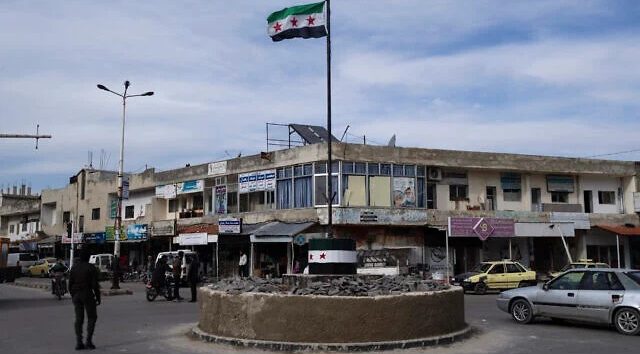Zionisr Regime Makes Strategic Move into Quneitra, While New Syrian Administration Lacks Effective Deterrent Approach
The Israeli Defense Forces (IDF) have escalated their activities in southern Syria, with a focus on the northern countryside of Quneitra. On January 2nd, the IDF advanced into the Al-Hamr Hills near Hadar and Taranja, where they engaged in the removal of trees, demolition of homes, and destruction of agricultural lands, along with Syrian Army barracks and weapons depots. The region has been designated a military zone, restricting access for civilians. Reports indicate that residents have been instructed to surrender weapons allegedly taken from Syrian military sites.

Israeli forces, backed by armored tank units, have advanced into the southern regions of Quneitra Countryside, specifically targeting the villages of Al-Asha, Abu Ghara, and Al-Hiran farm. This strategic move aims to reinforce their territorial control. In addition to dismantling existing fortifications, the forces have issued directives to local civilians, citing security measures as the rationale for their actions.
Israeli forces have reportedly progressed into the Syrian area of Jabatha al-Khashab, setting up new military positions and constructing a 3-kilometer road through the forested area. The town’s mayor has underscored the importance of opposing Israeli demands and urged the newly formed Syrian government to confront these transgressions. The situation is further exacerbated by the Israeli occupation forces’ command over weapons left behind amid the Syrian Army’s previous collapses, heightening regional tensions.
A pivotal event unfolded as Israeli forces captured the Mantara Dam, the most substantial water reservoir in southern Syria with a capacity of 40.2 million cubic meters. By constructing earthen barriers, the occupying forces have effectively restricted local residents’ access to this essential water supply. This action intensifies Syria’s ongoing water security challenges, especially amid the impacts of climate change and diminishing water reserves.
The script provided is a component of the official Twitter platform, used to integrate and display Twitter widgets on web pages. It facilitates the asynchronous loading of this function to enhance site performance while supporting a range of features offered by Twitter integration.
Israel’s establishment of 13 military posts in southern Syria, including the strategically significant Mount Hermon, poses an increased threat to Syria’s essential resources. Mount Hermon, home to an extensive water reservoir, holds significant implications for regional water security, with its control representing a potential existential challenge.
The Syrian government has lodged a formal complaint with the United Nations Security Council, denouncing the Israeli incursions and alleged violations of its territory. Despite this diplomatic maneuver, there has been minimal change in the situation on the ground. An Israeli official affirmed that their military forces would continue to hold positions in the captured areas until there are guarantees that Syria’s new administration is not a threat to Israel.
Recent developments have led to increasing frustration among Syrian citizens, raising doubts about the new administration’s capability to safeguard its territory and populace. This situation highlights the escalating humanitarian and geopolitical challenges in the Levant region. The Israeli Defense Forces (IDF) continue to strengthen their presence in southern Syria, a move perceived as contradictory to their stated aim of ensuring the security of Israel.







